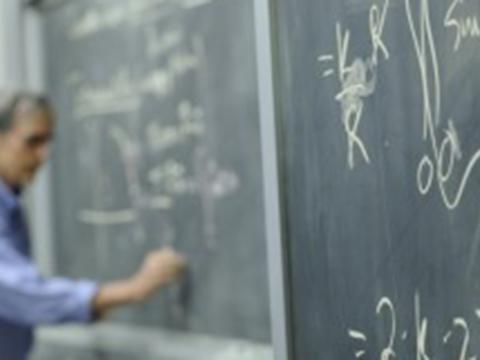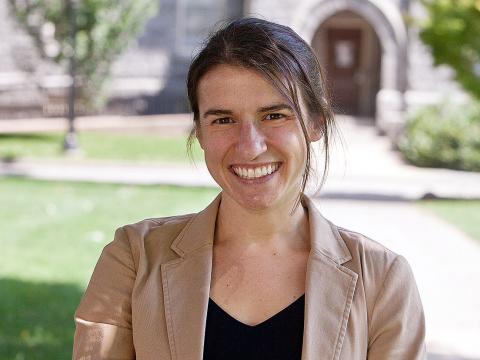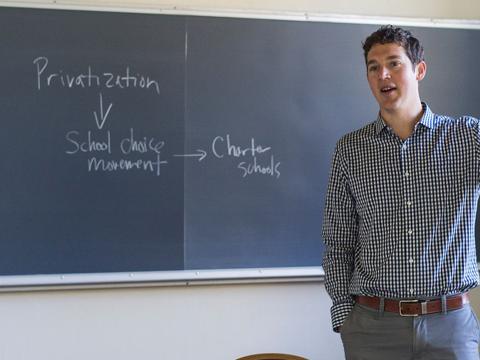The Office of Academic Resources’ Reading Rainbow series, which asks campus community members to share book recommendations, continued this semester with an event focused on books that the panelists—including President Kim Benston and Talia Scott ’19—would have given to themselves as a young adult.
-

-

This visual studies course explores the specific mid-20th-century movement of “conceptual art,” as well as its progenitors and its progeny. Students study the founding manifestos, canonical works, and critical appraisals, as well as develop tightly structured studio practica to embody the former research.
-

This first-year writing seminar examines cities as sites of public health concern and intervention in modern history.
-

Highlighting faculty professional activities, including conferences, exhibitions, performances, awards, and publications.
-

The professor of mathematics and statistics recently earned funding to create and host a “Careers in Biostatistics” event, featuring professionals and graduate students from the field to introduce the discipline to Haverford’s growing body of statisticians.
-

The assistant professor of chemistry is one of only two dozen early career academic scientists to receive this year's honor, which comes with a $100,000 award.
-

This course surveys electrochemical concepts relevant to real-world technologies—in particular those that advance renewable energy—through a combination of mini-lectures to introduce the topics and student-led discussions on current research in the field.
-

This history seminar uses primary-source readings, historical scholarship, and theoretical texts to explore the “self talk” of the Enlightenment period and to explore parallels to our own social-media age.
-

This course explores the evolution of the jihadi movement, focusing on its ideological development since the 1980s.
-

Susan Howe, winner of the 2017 Robert Frost Award for distinguished lifetime achievement in poetry, gave an on-campus reading.
-

This course offers a broad introduction to the field of computer security from two concurrent perspectives: attacks on systems and defenses against those attacks.
-

This comparative literature seminar examines diverse artistic responses (from Bertolt Brecht to Spike Jonze) to a rapidly evolving media environment that oscillate between technophilia and technophobia.
-

This interdisciplinary course, which is cross-listed in economics and political science, explores the relationship between policy and economic outcomes to understand “who gets what” in the United States.
-

The associate professor of political science talks about the book, which The Washington Post said should be required reading.
-

The 12 Bi-Co students in Naomi Safran-Hon’s “Sculpture: Materials and Techniques” class were asked to construct site-specific installations across campus—from the library to the Nature Trail to the KINSC Rotunda—for their final projects this fall.